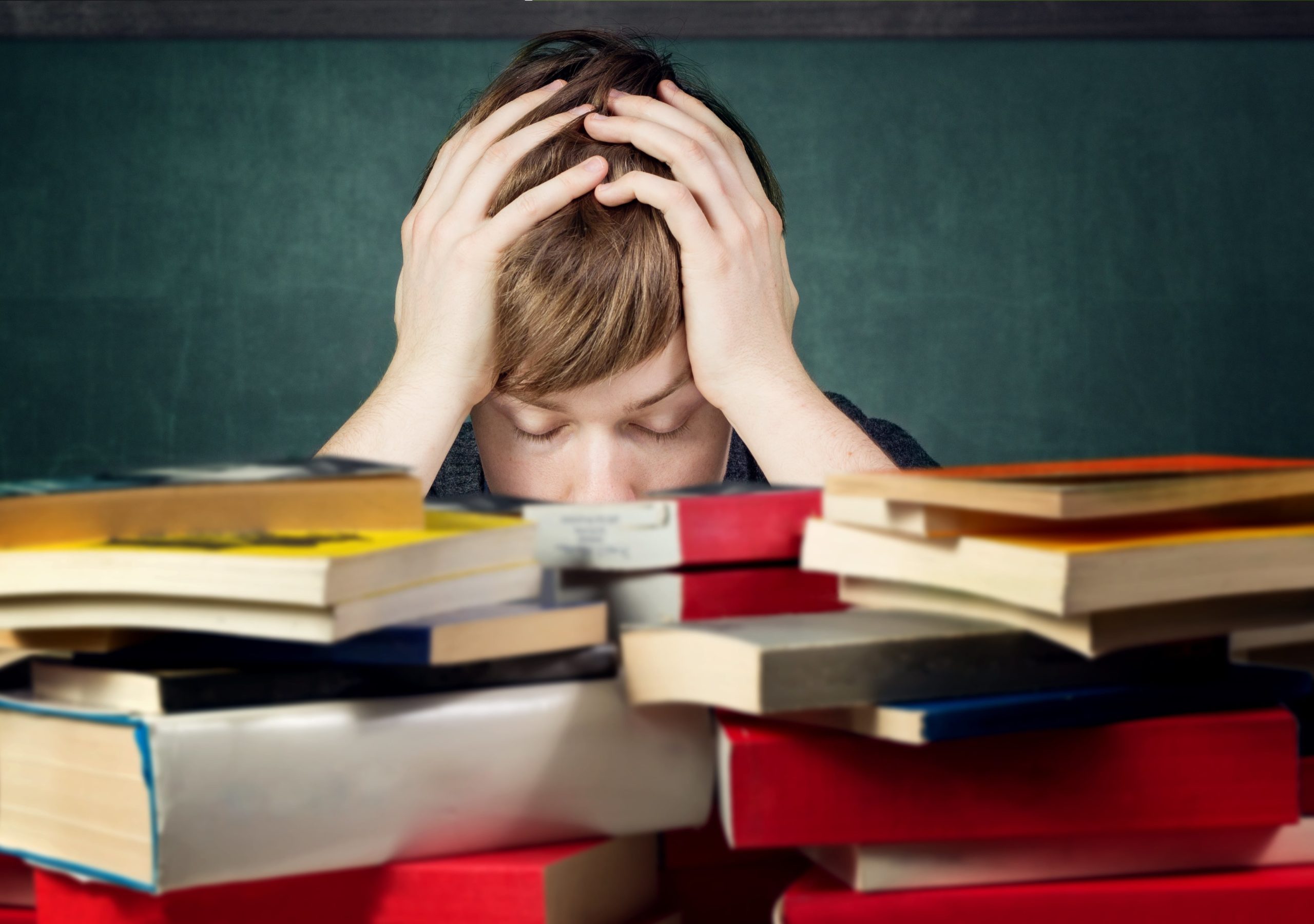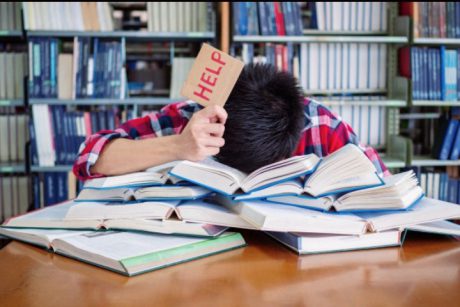Are You Struggling with Study Stress? Here are Top Tips from CrunchGrade Experts

Here are some of the top tips from our experts to manage stress, anxiety and depression in 4 to 17-year-olds:
Stress Management Tips
Acute stress is the body’s reaction to an external event or situation that is perceived as a threat. This could be an upcoming test, public speaking engagement or any other event that makes you feel nervous or anxious. Stress is not always bad. It can help you stay alert and focused. However, when stress is constant and interferes with your everyday life, it can lead to anxiety and depression.
Symptoms of Stress in School Students
Some of the symptoms that your child might be struggling with high stress are:
- Physical symptoms of stress may include headaches, tense muscles, upset stomach, trouble sleeping, grinding teeth or clenching jaw.
- Behavioural changes suggest stress when a usually outgoing child becomes withdrawn, a normally tidy student’s work and living areas become messy, or a generally well-behaved child starts acting out.
- Emotional symptoms may show up as irritability, anxiety, low self-esteem, feeling overwhelmed or hopeless.
- Concentration problems are another sign of stress in children and teenagers. They may have trouble completing tasks, have a shorter attention span, or make more mistakes than usual.
Possible Causes of Stress in School Students
There are many potential sources of stress for school students. Some common causes include:
- Academic pressure to achieve good grades
- Pressure to participate in extra-curricular activities
- Social pressures such as fitting in, making friends, and dealing with bullies
- Family issues such as divorce, parental arguments, or sick or absent family members
- Personal problems such as illness, body image issues, or relationship difficulties
What to do if your child is stressed?
If you think your child is struggling with stress, the first step is to talk to them about it. Ask them how they’re feeling and what’s going on in their life that might be causing stress.
Once you’ve identified the source of the stress, you can work together to find ways to manage it. Some ideas for managing stress include:
- Help your child develop a positive outlook by teaching them how to reframe negative thoughts into positive ones.
- Encourage your child to get regular exercise, eat a healthy diet, and get enough sleep.
- Teach your child relaxation techniques such as deep breathing, progressive muscle relaxation, or visualization.
- Help your child develop time management and organization skills.
- Encourage your child to talk to a trusted adult about their stressors. This could be you, another family member, a school counsellor, or a therapist.
- Seek professional help if you think your child’s stress is impacting their quality of life or causing them distress.
Anxiety Management
Anxiety is a normal human emotion that everyone experiences at some point in their life. It is the body’s way of responding to stress or a perceived threat. Anxiety becomes a problem when it is constant and interferes with your everyday life.
There are many different types of anxiety disorders, each with its own symptoms. Some of the most common types of anxiety disorders include:
- Generalized anxiety disorder (GAD): Constant worry and anxiety about everyday things such as your health, work, or family.
- Social anxiety disorder: Intense fear of social situations such as public speaking or meeting new people.
- Specific phobias: Irrational fear of specific objects or situations, such as heights, flying, or blood.
- Panic disorder: Recurrent and unexpected panic attacks followed by persistent worry about having another attack.
- Obsessive-compulsive disorder (OCD): Intrusive and unwanted thoughts (obsessions) that lead to repetitive behaviours (compulsions) in an attempt to relieve anxiety.
Common Symptoms of Anxiety in School Students
Anxiety can manifest in both physical and psychological symptoms. Some common symptoms of anxiety in school students include:
- Physical symptoms may include racing heart, sweating, trembling, shortness of breath, dizziness, nausea, headache, and fatigue.
- Psychological symptoms often observed in children include worry, doubt, fear, Constant negative thinking (“what if” thinking), catastrophic thinking, and rumination.
- Behavioural symptoms may include avoiding feared situations, withdrawing from friends and activities, clinginess, irritability, difficulty concentrating, and restlessness.
- Children with anxiety may also have difficulty sleeping or experience nightmares.
Possible Causes of Anxiety in School Students
Anxiety in school students often stems from a combination of several factors. Some possible causes of anxiety in school students include:
- Family history: Anxiety can be hereditary and run in families. If you have a family member with an anxiety disorder, you are more likely to develop one as well.
- Life events: Traumatic or stressful life events such as the death of a loved one, divorce of parents, or moving to a new school can trigger anxiety.
- Biology: Certain medical conditions or imbalances in brain chemistry can contribute to anxiety disorders.
- Personality: People with certain personality traits such as perfectionism or a tendency to worry may be more prone to developing anxiety.
- Drugs: Some recreational drugs such as marijuana can increase anxiety levels.
What to do if your child is struggling with anxiety management?
Some of the best and most effective anxiety management techniques are:
- Breathing exercises: Help your child to focus on their breath and take slow, deep breaths in through the nose and out through the mouth.
- Progressive muscle relaxation: This involves tensing and relaxing different muscle groups in the body to help reduce overall tension.
- Visualization: Have your child close their eyes and imagine a calm and peaceful scene.
- Mindfulness: This involves paying attention to the present moment and accepting thoughts and feelings without judgement.
- Exercise: Physical activity can help to reduce stress and improve mood.
- Relaxation techniques: Teach your child how to use relaxation techniques such as yoga, Tai Chi, or meditation to help reduce anxiety.
- Cognitive-behavioural therapy (CBT): This is a type of therapy that helps to identify and change negative thinking patterns that contribute to anxiety.
- Medication: In some cases, medication may be necessary to help manage anxiety. Antidepressants, beta-blockers, and anti-anxiety medications can all be used to treat anxiety disorders.
- Herbal remedies: Some people find that certain herbal remedies such as chamomile or lavender help to reduce anxiety.
- Adjusting the diet: Eating a healthy diet and avoiding caffeine, alcohol, and sugary foods can help to reduce anxiety levels.
Anxiety is a normal and common emotion that everyone experiences at some point in their life. However, when anxiety begins to interfere with daily life, it may be time to seek professional help. If you think your child may be struggling with anxiety, talk to their doctor or mental health professional. With proper treatment, most people with anxiety disorders can lead happy and productive lives.
Coping with Depression

Depression is a mental health disorder that causes persistent feelings of sadness and loss of interest. Unlike anxiety, depression does not usually involve fear or worry.
Symptoms of Depression in School Students
Depression can manifest in a number of ways, but some common symptoms include:
- Persistent feelings of sadness, emptiness, or hopelessness
- Loss of interest in activities that were once enjoyed
- Feelings of worthlessness or guilt
- Fatigue or decreased energy levels
- Difficulty concentrating
- Changes in appetite or weight
- Sleep disturbances
- Thoughts of death or suicide
Possible Causes of Depression in School Students
There is no single cause of depression, but it is thought to be the result of a combination of genetic, psychological, and environmental factors. These may include:
- Family history: Depression can run in families, so if you have a parent or sibling with the condition, you may be more likely to develop it yourself.
- Brain chemistry: Imbalances in certain brain chemicals called neurotransmitters may play a role in depression.
- Hormonal changes: Changes in hormone levels during puberty or pregnancy can trigger depression in some people.
- Life events: Stressful life events such as the death of a loved one, divorce of parents, or bullying can lead to depression.
- Poor coping skills: People who lack the ability to cope with stress or manage difficult emotions may be more likely to develop depression.
What to do if your child is depressed?

If you think your child is depressed, it is important to seek professional help. Depression is a serious condition that can lead to problems with school, work, and relationships. If left untreated, it can even lead to suicide.
There are several different treatment options for depression, including medication, therapy, and lifestyle changes. The best treatment will vary depending on the individual.
At home, you can help your child by:
- Encouraging them to stay active and participate in activities they enjoy.
- Helping them to stick to a routine and structure their day.
- Encouraging them to eat a healthy diet, get enough sleep, and avoid drugs and alcohol.
- Listening to them and providing support and understanding.
- Encouraging them to seek professional help if needed.
Depression is a serious condition, but it is treatable. With the right support, your child can overcome depression and live a happy and successful life.

